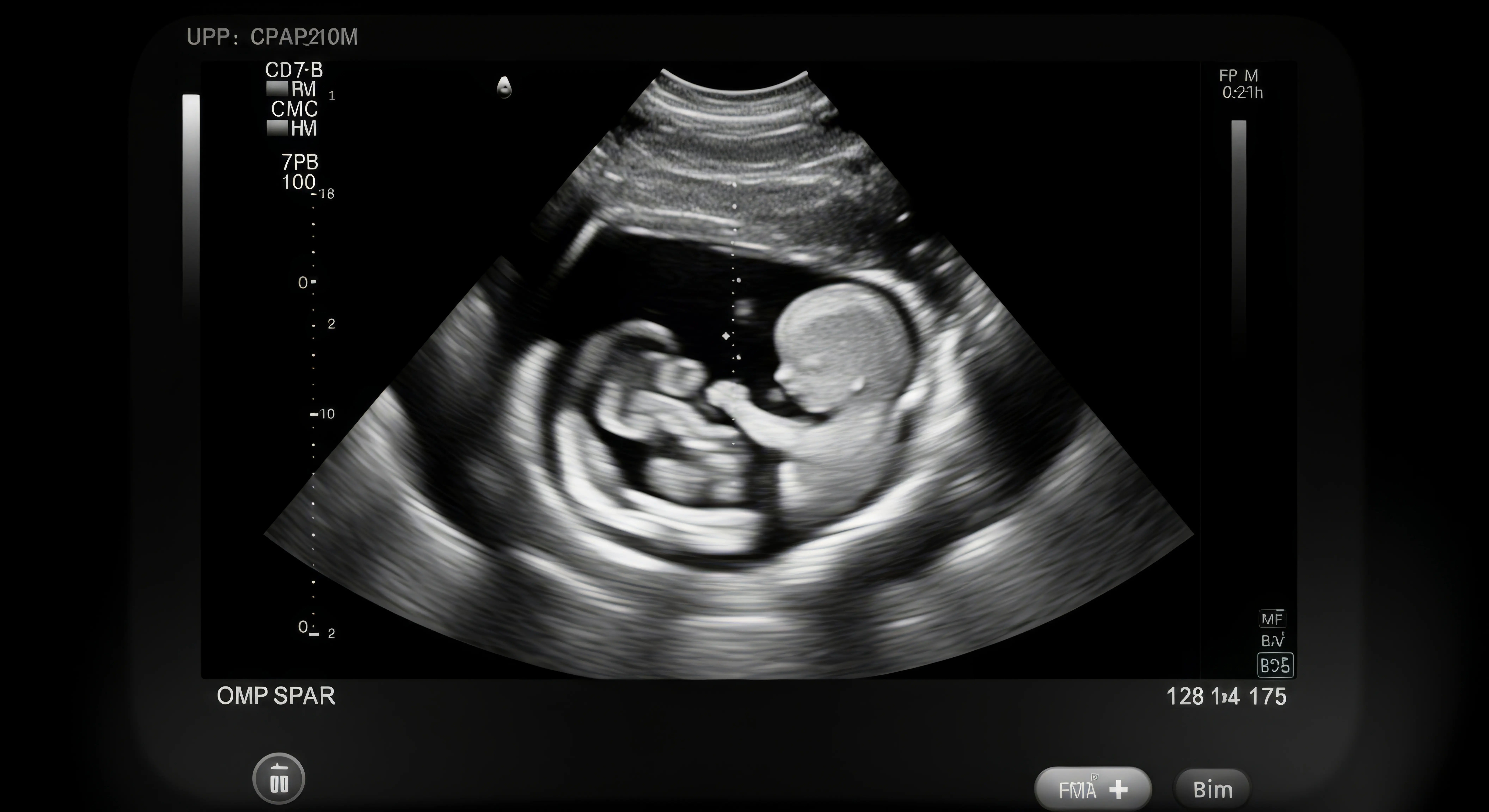Guide to Dietary Myths Pregnancy
Confused by pregnancy diet myths? This evidence-based guide debunks common misinformation and explains what foods and habits truly support a healthy pregnancy. Learn the facts about caffeine, fish, food safety, cravings, supplements, and more.


Introduction
The internet is full of advice about what to eat, drink, and avoid when you are expecting. Some tips are accurate, while others are outdated myths that can make the experience more stressful than necessary. This guide clarifies common dietary myths in pregnancy and replaces them with trustworthy, science-based advice. You will discover the truth about caffeine, fish, unpasteurised foods, cravings, artificial sweeteners, and more. We also cover balanced plates, special dietary needs, and when to seek help. Consider this your practical, evidence-based handbook to eating confidently and safely during pregnancy.
Myth 1 — “Eating for Two” Means Doubling Your Calories
Small changes in calories are needed, but nutrient quality matters far more.
What Your Body Actually Needs
Calorie increases are modest across pregnancy: none typically needed in the first trimester, a small increase in the
second, and a little more in the third. Focus on fibre, protein, calcium, iron, iodine, choline, folate, and omega-3 DHA
to support healthy growth and energy.
Healthy Weight Gain Ranges
Recommended pregnancy weight gain varies based on your starting BMI, and your clinician may tailor this. If ongoing
nausea or poor intake continues beyond two weeks, consult a doctor online with Apollo24|7 for support.
Example “Balanced Plate” (H4)
- Half plate: non-starchy vegetables
- Quarter plate: whole grains or starchy vegetables
- Quarter plate: quality protein (eggs, legumes, poultry, fish)
- Include dairy or a fortified alternative plus healthy fats
Myth 2 — “No Coffee Allowed”: Caffeine, Tea, and Energy Drinks
Moderate caffeine can be safe; the key is tracking your intake.
Coffee and Tea Limits
Most guidelines consider up to 200 mg caffeine per day safe during pregnancy. Coffee, tea, chocolate, fizzy drinks, and
some medications all contribute, so a daily tally helps prevent sleep issues or palpitations.
Energy Drinks and Herbal Stimulants
Energy drinks are discouraged due to stimulant content and unclear labelling. Some herbal teas are appropriate, while
others should be avoided. Stick with pregnancy-friendly options like ginger or peppermint in moderation. If palpitations
persist, consult a doctor online with Apollo24|7.
Myth 3 — “Avoid All Fish”: Mercury vs Omega-3 Benefits
The right fish offers vital nutrients for your baby’s brain and eyes.
Why Fish Matters
Fish provides high-quality protein, iodine, selenium, vitamin D, and DHA. Aim for 2–3 servings of low-mercury fish
each week.
Low-Mercury Choices and What to Avoid
Choose salmon, sardines, trout, anchovies, cod, tilapia, prawns, and pollock. Limit or avoid high-mercury types such as
shark, swordfish, king mackerel, and bigeye tuna. Plant-based eaters may choose algae-derived DHA supplements.
Sushi Safety
Raw sushi carries small but real infection risks. Opt for cooked seafood rolls, vegetarian rolls, or tempura instead when
dining out.
Myth 4 — “Fresh Equals Safe”: Raw, Unpasteurised, and Deli Meat Risks
Food safety matters because pregnancy increases infection vulnerability.
Understanding Listeria
Listeria can grow even at fridge temperatures and may lead to serious complications. Awareness of high-risk foods
greatly reduces concern.
Cheese, Milk, and Deli Meats
Choose only pasteurised dairy products. Heat deli meats and smoked fish to steaming hot before eating. Avoid
refrigerated pâtés or spreads unless they are shelf-stable.
Eggs and Sprouts
Ensure eggs are cooked until yolks and whites are firm. Avoid raw sprouts; cooked versions are safer.
Myth 5 — “Natural Means Safe”: Supplements, Herbs, and Sweeteners
Natural does not always mean harmless — especially when pregnant.
Essentials That Matter
A prenatal supplement with folic acid is recommended for everyone. Iron, iodine, vitamin D, and choline are also
important for maternal and fetal health. If fatigue or pica develops, tests like iron levels may be required. Apollo24|7
offers home sample collection if your clinician suggests checks.
Herbs and Teas
Some herbs may affect hormones or the uterus. Use well-known pregnancy-safe teas in moderation and avoid
medicinal-strength herbs unless approved by your healthcare provider.
Artificial Sweeteners
Most sweeteners, like aspartame, sucralose, and stevia, are generally considered safe in moderate amounts during
pregnancy. Prioritise whole foods whenever possible.
Myth 6 — “Cravings Mean Your Body Knows Best”
Cravings are common but do not always reflect nutritional needs.
Cravings and Pica
Balance treats with fibre and protein. Cravings for non-foods such as dirt, clay, or laundry starch (pica) can indicate
deficiencies — speak to a clinician and consider iron studies.
Nausea, Heartburn, and Constipation — A Diet That Helps
Small, frequent meals, ginger for nausea, and a high-fibre diet can help manage common pregnancy discomforts. If
vomiting prevents fluid retention for 24 hours, seek prompt medical care.
Spicy Food, Pineapple, and Papaya
Spicy food is safe but may worsen heartburn. Ripe papaya is fine; avoid unripe papaya. Pineapple does not induce
labour in normal food quantities.
Special Diets and Conditions
Different lifestyles and health needs require tailored nutrition planning.
Vegetarian and Vegan Pregnancy
Well-planned plant-based diets are safe with attention to vitamin B12, iodine, iron, omega-3 DHA, and choline.
Consider fortified foods and supplements.
Gestational Diabetes and Myths
Balanced carbohydrate intake spread across meals is key. Avoid restrictive low-carb or ketogenic diets. If blood glucose
remains high despite dietary changes, book an online appointment with Apollo24|7.
Cultural Foods, Safely
Most cultural dishes can remain on the menu with safe preparation: fully cooked meats and eggs, pasteurised dairy, and
low-mercury fish choices.
Food Safety That Matters Day-to-Day
Daily hygiene practices significantly reduce foodborne illness risks.
Fridge, Leftovers, and Reheating
Keep cold foods cold and hot foods hot. Use shallow containers and consume leftovers within a few days.
Dining Out and Travel
Choose reputable establishments, avoid buffets, and check food is fully cooked. Pack safe snacks while travelling.
Water and Hand Hygiene
Wash hands frequently, rinse produce, and ensure drinking water is safe.
Building a Balanced Pregnancy Plate
A structured approach supports both energy and micronutrient needs.
Simple Template
Half vegetables and fruit, a quarter whole grains, and a quarter protein, with dairy or fortified alternatives and healthy
fats. Drink 2–3 litres of water daily as tolerated.
Sample One-Day Menu
A practical plan including eggs, legumes, vegetables, salmon, whole grains, berries, and milk or fortified alternatives
meets key nutrients.
Budget-Friendly Ideas
Frozen vegetables, canned fish, store brands, and batch cooking help reduce food costs.
When to Get Help and Which Tests to Consider
Professional support helps keep you and your baby well.
Red Flags
Persistent vomiting, dehydration, fever, rapid weight change, pica, or severe constipation warrant prompt care. If
symptoms persist beyond two weeks, consult a doctor online with Apollo24|7.
Professional Support
Dietitians guide personalised plans for GDM, vegan diets, allergies, or cultural preferences. Apollo24|7 enables both
online and in-clinic appointments.
Useful Tests
Your clinician may recommend blood tests for anaemia, vitamin D deficiency, thyroid issues, or gestational diabetes,
all available through home collection if advised.
Conclusion
Sorting fact from fiction helps reduce anxiety during pregnancy. The essentials are simple: gradual calorie increases, nutrient-dense meals, safe caffeine levels, sensible seafood choices, and consistent food hygiene. A good prenatal supplement plus balanced eating supports you and your baby. When uncertainty arises, rely on credible healthcare guidance. With practical knowledge and the right support, you can confidently nourish yourself throughout pregnancy.
Consult a Top Gynaecologist for Personalised Advice
Consult a Top Gynaecologist for Personalised Advice

Dr. Sushith C
General Physician
2 Years • MBBS
Bengaluru
PRESTIGE SHANTHINIKETAN - SOCIETY CLINIC, Bengaluru

Dr. Sreeparna Roy
Obstetrician and Gynaecologist
8 Years • MBBS , MS (OBSTETRICS & GYNAECOLOGY), Fellowship in Infertility, Endoscopy & Ultrasonography), Fellowship in Laparoscopy & Hysteroscopy,DRM
Kolkata
Dr Utsa Basu Clinic, Kolkata

Dr. Revathi S Rajan
Obstetrician and Gynaecologist
24 Years • MBBS, DGO, DNB.FFMM
Bengaluru
Apollo Clinic, JP nagar, Bengaluru
Dr. B Shravanthi Reddy
Radiation Specialist Oncologist
8 Years • MBBS, DNB(Radiation Oncology)
Manikonda Jagir
Apollo Clinic, Manikonda, Manikonda Jagir
Dr. Sasikamalam
General Practitioner
1 Years • MBBS
COIMBATORE
Apollo Sugar Clinic Coimbatore, COIMBATORE
Consult a Top Gynaecologist for Personalised Advice

Dr. Sushith C
General Physician
2 Years • MBBS
Bengaluru
PRESTIGE SHANTHINIKETAN - SOCIETY CLINIC, Bengaluru

Dr. Sreeparna Roy
Obstetrician and Gynaecologist
8 Years • MBBS , MS (OBSTETRICS & GYNAECOLOGY), Fellowship in Infertility, Endoscopy & Ultrasonography), Fellowship in Laparoscopy & Hysteroscopy,DRM
Kolkata
Dr Utsa Basu Clinic, Kolkata

Dr. Revathi S Rajan
Obstetrician and Gynaecologist
24 Years • MBBS, DGO, DNB.FFMM
Bengaluru
Apollo Clinic, JP nagar, Bengaluru
Dr. B Shravanthi Reddy
Radiation Specialist Oncologist
8 Years • MBBS, DNB(Radiation Oncology)
Manikonda Jagir
Apollo Clinic, Manikonda, Manikonda Jagir
Dr. Sasikamalam
General Practitioner
1 Years • MBBS
COIMBATORE
Apollo Sugar Clinic Coimbatore, COIMBATORE
More articles from pregnancy
Frequently Asked Questions
1) Is one cup of coffee a day safe during pregnancy?
Yes, up to around 200 mg caffeine per day is generally considered safe, including caffeine from tea, chocolate, and fizzy drinks.
2) Which cheeses are safe?
Pasteurised cheeses (hard and many soft varieties) are usually safe. Avoid unpasteurised cheeses.
3) Can I eat sushi?
Choose sushi containing cooked seafood or vegetables. Raw fish is best avoided.
4) Are artificial sweeteners okay?
Most are acceptable in moderation. Individuals with PKU must avoid aspartame.
5) Do cravings indicate nutrient deficiencies?
Not always. Cravings for non-foods (pica) require medical attention.




